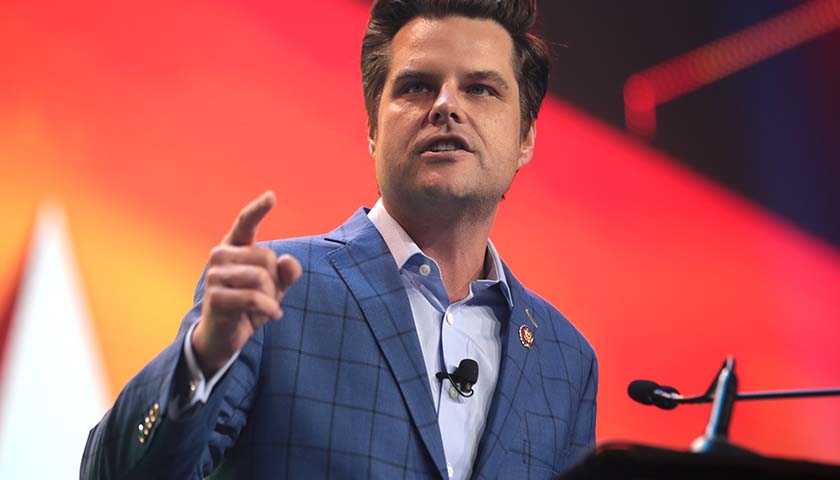by Kerry McDonald
A recent NPR article, titled “What Economists Think About Democrats’ New Education Proposals,” caught my eye. FEE, after all, is an economic education organization that looks at how free markets and individual liberty lead to more progress, greater prosperity, and better outcomes for all than any other social or economic system ever created. I was curious what these NPR-interviewed economists might say about the Democratic presidential candidates’ education plans, which involve funneling more money into a government system of mass compulsory schooling.
What’s the Plan?
According to the article, Democratic presidential hopeful Kamala Harris wants to spend $315 billion of taxpayer money to lift teacher salaries. Joe Biden wants to increase federal spending to low-income schools with teacher pay hikes. Bernie Sanders wants to impose price controls for teacher salaries, imposing a pay floor of $60,000 for incoming teachers. To its credit, the NPR article explains that by both domestic and international standards, American teachers are already well compensated and enjoy above-average employee benefits.
But that’s not enough, according to one of the economists interviewed. Eric Hanushek of Stanford says: “I think teachers are way underpaid.” Hanushek and others argue that teachers who are able to increase student test scores can improve both a student’s lifetime earnings and contribute positively to society at large.
The NPR reporter, Greg Rosalsky, concludes: “While being a good teacher means huge economic benefits for the people they teach and society at large, teachers don’t get to fully share in all the benefits they create. In economic terms, that’s a positive externality, and it’s a big reason why we should pay them more.”
Duquesne University economist Antony Davies disagrees. Davies, the Milton Friedman Distinguished Fellow at FEE, explains that the media often misunderstands and misuses the term “externality,” as NPR did here. “Failing to share fully in the benefits one creates is not an externality,” says Davies. He continues:
The phenomenon is called “consumer surplus.” Not only does it exist in every transaction, it’s the reason we exchange with each other at all. Consider a car purchase. When a car dealer charges me $30,000 for a car for which I would have been willing to pay $35,000, the dealer does not benefit fully from the exchange. I walk away from the exchange $5,000 better off. But that doesn’t mean the dealer doesn’t benefit also. If the dealer charges me $30,000 but would have been willing to take $27,000, then the exchange makes the dealer $3,000 better off. For the exchange to occur, neither I nor the dealer can fully benefit from the exchange. Instead, we share the benefit. How we share the benefit is determined by the price to which we agree.
If teachers benefited fully from the value they create, there would be no point in obtaining an education because the entire value of the students’ educations would go to the teachers. Similarly, if students fully benefited from the value that teachers impart, there would be no point in teaching because the entire value of the students’ educations would go to the students. Instead, teachers and students share the value they create, and both walk away from the exchange better off than they were.
Davies points out a central problem with the Democratic presidential candidates’ education proposals, arguing that creating salary floors or offering universal pay increases do not address the root of the problem. He says:
The problem with teacher pay isn’t that teachers are paid too much, nor is it that they are paid too little. The problem with teacher pay is that it is largely divorced from teacher performance. Because pay schedules are usually set by the school district, principals don’t have the ability to reward outstanding teachers with greater pay nor to punish poor teachers with less.
Angela Dills, professor of economics at Western Carolina University, concurs. “I agree that better teachers should receive higher pay and that that’s more effective than across the board pay increases,” she says.
The inability to differentiate teacher quality and pay teachers accordingly limits the opportunity to reward top teachers and urge weaker teachers to improve. School leaders are not the only ones without the discretion to signal good and bad performance. Parents are also unable to offer these signals, with most required to keep their child in an assigned district school whether they like it or not. According to Davies: “Parents don’t have the ability to reward outstanding public schools and punish failing schools by diverting their tax dollars to the schools of their choice.”
A Better Alternative
Education choice mechanisms, like Education Savings Accounts (ESAs), tax-credit scholarship programs, and vouchers, allow parents to signal quality by opting out of inadequate schools and into higher quality learning spaces that work better for their children. Davies explains:
Voucher opponents claim that vouchers diminish the quality of public education by siphoning tax dollars away from public schools. But regardless of whether the quality argument is correct, the siphoning can easily be avoided. Allowing parents to send their children to any public school they choose and have the tax dollars follow the student—essentially, a voucher program restricted to public schools—would restore the link between pay and performance without removing any dollars from the public school system.
Programs like these can put parents back in charge of their children’s educations and can trigger true educational change. But the current crop of Democratic presidential candidates appears more interested in expanding the government’s ability to impose decisions on us. Empowering people to make their own choices is not in their education plans.
– – –
Kerry McDonald is a Senior Education Fellow at FEE and author of Unschooled: Raising Curious, Well-Educated Children Outside the Conventional Classroom (Chicago Review Press, 2019). Kerry has a B.A. in economics from Bowdoin College and an M.Ed. in education policy from Harvard University. She lives in Cambridge, Massachusetts with her husband and four children. Follow her on Twitter @kerry_edu. You can sign up for her weekly newsletter on parenting and education here.
Photo “Teachers with Kids” by Ilmicrofono Oggiono. CC BY 2.0.




